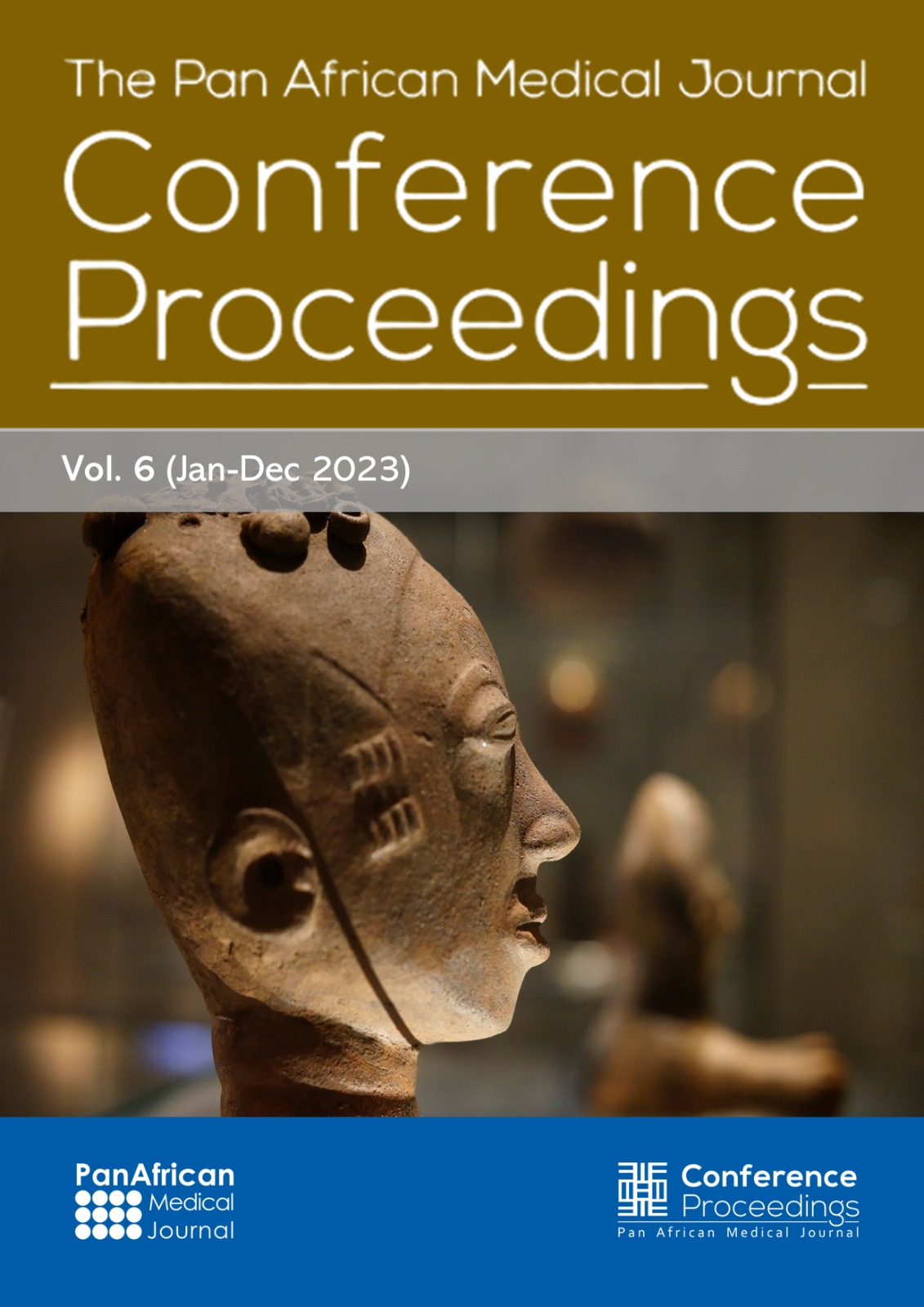Conference abstract
Effect of health education on perception and uptake of cervical cancer screening services among female healthcare workers in Osun State
Pan African Medical Journal - Conference Proceedings. 2018:8(85).09
Apr 2018.
doi: 10.11604/pamj-cp.2018.8.85.667
Archived on: 09 Apr 2018
Contact the corresponding author
Keywords: Cervical cancer, screening, health-care workers, health education
Opening ceremony
Effect of health education on perception and uptake of cervical cancer screening services among female healthcare workers in Osun State
Dorcas Adeola Aderinwale1,&, Adedeji Onayade2, Abdullahi Musa3
1Nigeria Field Epidemiology and Laboratory Training Programme, Abuja, Nigeria, 2Obafemi Awolowo University, Ile-Ife, Nigeria, 3African Field Epidemiology Network (AFENET), Nigeria
&Corresponding author
Dorcas Adeola Aderinwale, Nigeria Field Epidemiology and Laboratory Training Programme, Asokoro, Abuja, Nigeria
Introduction: cervical cancer is the leading genital tract malignancy and cause of cancer deaths among women in developing countries. A lack of effective screening programme aimed at detecting and treating precancerous condition is a key reason for the much higher incidence of cervical cancer in developing countries. This study was done to determine non- utilization of cervical cancer screening services among female health care workers.
Methods: this study was interventional employing quantitative and qualitative methods; intervention consisted of structured health education. Multistage sampling technique was used to select two LGAs; Atakumosa West and Orolu (Intervention and Control groups respectively). A sample size of 100 per group was estimated; expected prevalence of uptake of cervical cancer screening services of 19.3%, prevalence of uptake of cervical screening from a previous study of 4.3%, a standard normal deviate of 1.96, a margin of error of 5% and an attrition rate of 10%. Data were collected using pre-tested, semi- structured self-administered questionnaires and FGD guides. Data was analyzed using the SPSS version 22 for univariate and bivariate analysis. Level of significance was p < 0.05.
Results: post-intervention, there was statistically significant increase in the awareness of cervical cancer and screening in the intervention group (χ2 = 33.06, P < 0.001) while good knowledge of cervical cancer and screening also increased significantly (84.4%) compared to the baseline in the intervention group (p < 0.001) without significant change in the control group. Positive attitude towards cervical cancer screening was higher in the intervention group (76.7%) compared with the control group (53.9%) (p = 0.001) which was similar pre-intervention (48% and 41% respectively). There was however, no significant change in the utilization of cervical cancer screening services pre and post intervention in the intervention group (14% and 18%) and control group (12.4% and 16%). FGD findings on the main reason for non-utilization of cervical cancer screening services among the study and control groups is lack of awareness of the location for the screening and cost of the services.
Conclusion: health education is effective in improving knowledge and achieving positive attitude to cervical cancer screening services among female health care workers.








